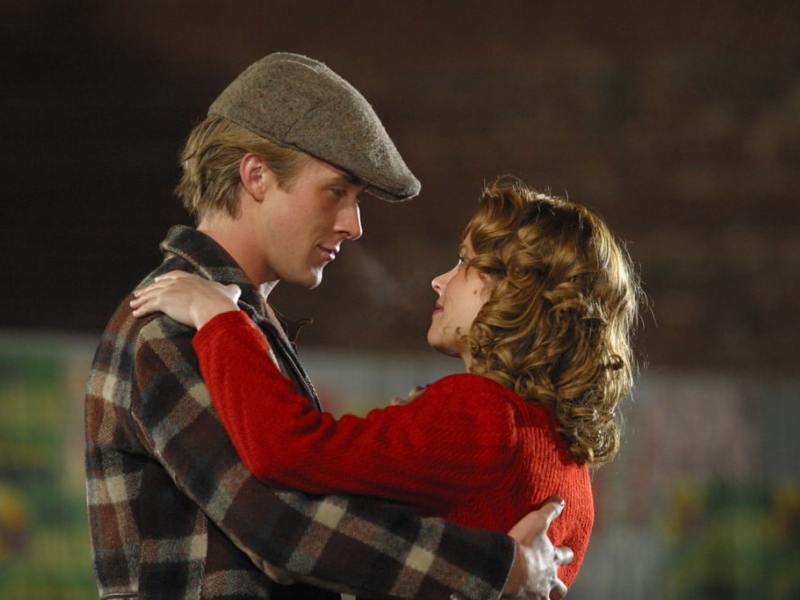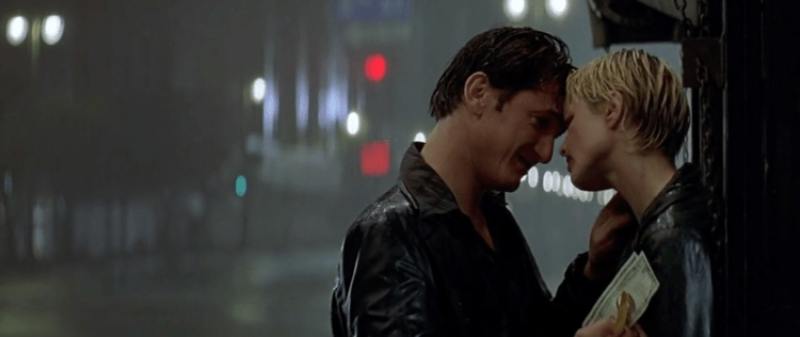
This article is part of our series exploring the concept of Hollywood Royalty. To read more in this series, click here.
What does it mean for a movie to be good? It’s a question that confronts every film critic as they go about their business of determining if movies are good or not and, living in an aspirational meritocracy, we would like to think that we’re giving every film a fair shake. But there’s also, as a much-quoted Billy Shakes line will tell you, quite a lot in a name. As our Kieran Fisher noted, people will still keep on seeing the new Michael Bay film even if the last one sucked. The appeal of the royal families of filmmaking and acting has a similar appeal: David Lynch’s daughter, huh? James Franco’s brother, you say? It’s a compelling pitch, even if no artist will make it to your face. And oftentimes, sometimes satisfying: Sofia Coppola’s latest awes the same festival audiences that her father’s best films once did. Jennifer Lynch’s movie starred cut-off limbs and Sherilyn Fenn. Dave Franco gives credibility to the high school students that he plays.
But few familial arcs have created as much or as divisive work as the Cassavetes clan: independent auteur John Cassavetes made his first film, the proto-independent classic Shadows in 1959 and his son, Nick Cassavetes, released his latest poorly-reviewed cringe comedy, The Other Woman, back in 2014. And in between these two totems sit much of the history of American independent cinema, whose stylized and intensely personal eye many lays on the shoulders of the later work of the first Cassavetes. It was titles as Faces and A Woman Under the Influence that read now like roadmaps well-folded and worn by the indie titans of 90s cool: Vincent Gallo, Kimberly Peirce, Jim Jarmusch.
Of his three children with wife and iconic star Gena Rowlands, all ended up directing films. Daughters Zoe and Xan have helmed two movies each in their career so far, the most remarkable of these Zoe Cassavetes’ Broken English, a film that looked toward the work of her father’s devout followers and the world of hip cinema abroad, starring Parker Posey and involving lots of Paris. These are, as I write them, clichés of their style of cinema and were treated as such at the time; Roger Ebert was among the many who wrote the title off as a poor man’s Before Sunset. But much like the realistic mumblings of wan masculinity that her father proved so adept at capturing from the likes of Ben Gazzara and Seymour Cassel, Zoe Cassavetes finds the real, anxious and unidealized femininity inside the performances of Posey and Rowlands, who returned to a Cassavetes production to play, who else, the mother.
A more complex relationship exists, however, between the work of Nick Cassavetes and the elder John: he is the only one of the bunch who can be said to have achieved comparable renown outside the shadow of his father; or, at the very least, making work that appeals to people who might not have an intimate appreciation of his father’s indie classics. Nick Cassavetes’ movies have, in fact, won no fewer than ten Teen Choice Awards, an accolade it’s hard to see a movie like The Killing of a Chinese Bookie ever in the running for. The winner of most of those awards, of course, was The Notebook.
But before Nick Cassavetes took on last decade’s most beloved pair of star-crossed lovers, he took on one of the forty or so unproduced screenplays that his father had penned before his death. “In no way shape or form can I compare myself with him because a guy like him comes along every hundred years,” he had spoken, reverently, in interviews but the movie that came out of this, She’s So Lovely, which starred Robin Wright, Sean Penn, and John Travolta, made a fascinating argument for exactly where and how the two directors’ styles precisely diverged.
The script’s starting point, a disintegrating marriage, is pure old man Cassavetes territory, with a jagged emotional back and forth that dominates its first half and feels straight out of Faces. The plot pivots around Sean Penn’s character, whose mental instability is drawn out with the kind of absurd catechisms that, again, the elder Cassavetes was known for exploring in some of his most acclaimed ’70s work. But his son’s approach reflects a determinedly divergent sensibility, the performances he gets out of Wright and Penn are lucidly high-strung and put at the center of his camera’s focus. Where his father’s approach was determinedly downbeat and borderline mumblecore, in She’s So Lovely, Penn’s final psychotic break is performed like a dramatic monologue; string sections rise to constant aplomb; there is much making out in the rain.

She’s So Lovely (1997)
Which is to say, Nick Cassavetes is able to turn to moments of a gritty, downbeat script into something that can feel, at times, almost like, well, The Notebook. By sheer volume of box office returns and DVD rentals, the Ryan Gosling and Rachel McAdams-starring hit would end up defining the younger Cassavetes career and it’s hard to imagine that its saturated colors and equally dramatic performances are of the same world as the small quietly tense indies that his father would retroactively inspire.
Yet, the interests of both directors remain in the world of small intimacies, of dramas that highlighted human connectedness; their versions of realism differ incredibly but neither was interested in the grandiosity that Hollywood inspires in many a director. It is hard not to read the movie that followed The Notebook, the true-crime thriller Alpha Dog, as Nick Cassavetes’ version of the kind of noir films that his father would pursue. Not unlike She’s So Lonely, the performances the younger Cassavetes draws from Emile Hirsch and Ben Foster are overpowering; in his version of the world, Cassavetes uses the increasing stakes of the kidnapping movie to serve as pins that slowly escalate its drama into a series of shouting matches. But he never steps outside of their world, its intimacies, however he sees them, are ultimately what he is interested in capturing.
So, what makes one series of overly intimate performances Oscar-nominated classics and another a Teen Choice Award favorite? In an ultimate sense, both see the world that begins and ends with the narrow series of relationships that define our day-to-day lives. What frames The Notebook, after all, besides the lives of Noah and Allie and a camera that suggests that those lives are all that matters to them? It’s a Cassavetes world, after all.
Related Topics: Hollywood Royalty
